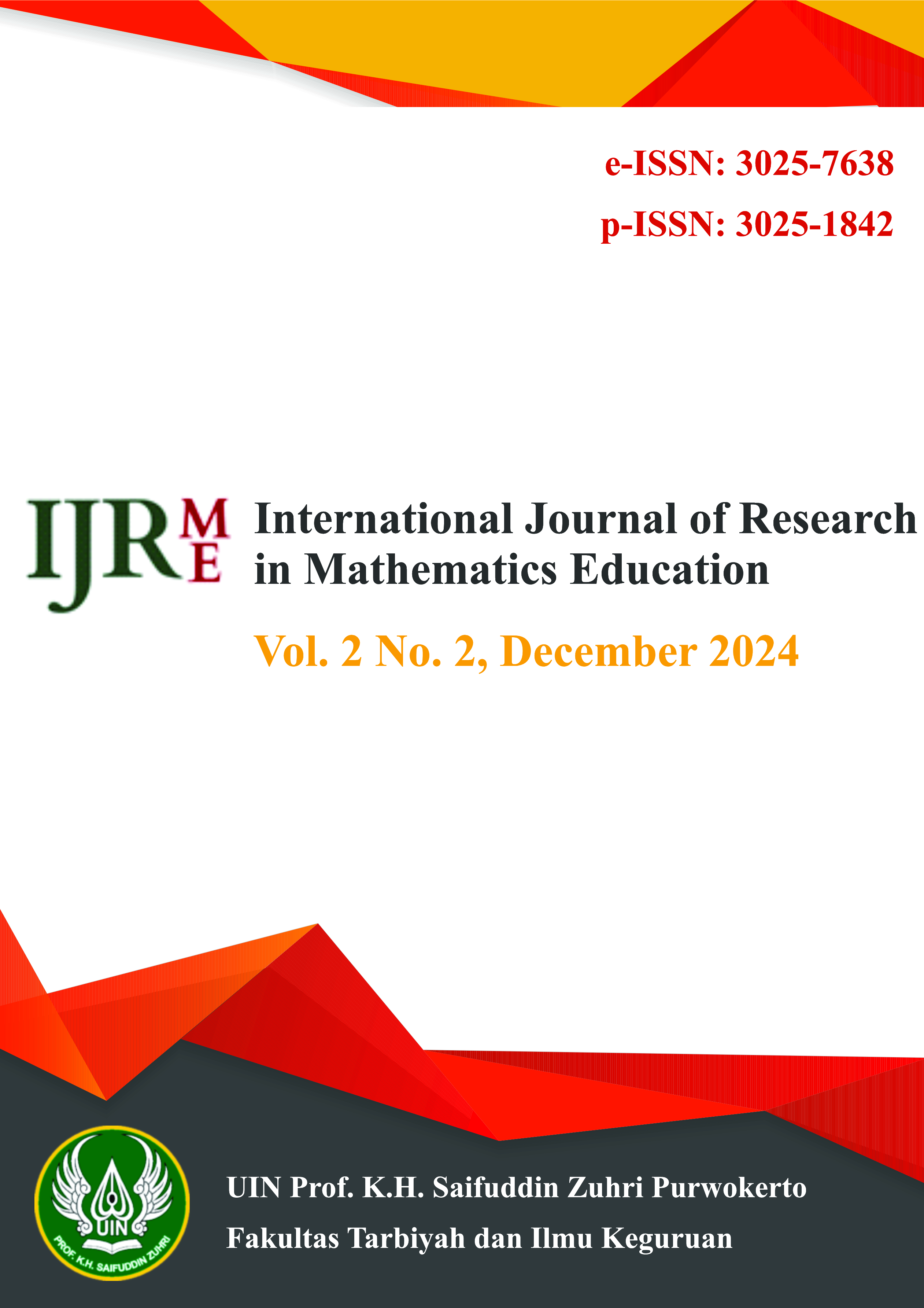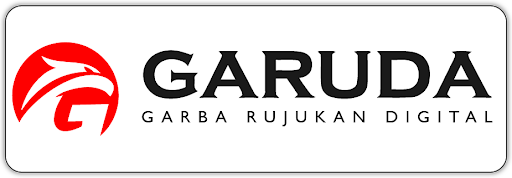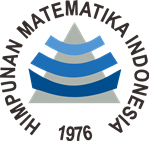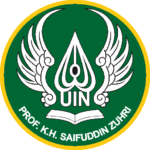Analysis Ability Literacy Mathematics Reviewed from Self Efficacy Junior High School Students
DOI:
https://doi.org/10.24090/ijrme.v2i2.12354Keywords:
Mathematics, Literacy Mathematics, Self EfficacyAbstract
study in study This to explain about ability literacy mathematics participant reviewededucation from self efficacy. Research This aiming for analyze and describe ability literacy mathematicsbased on self efficacy participant educate with category high, medium, and low. Research Thisconducted at PKBM Homeschooling HSPG Purwokerto . Subject study this is participant educate 9thgrade of junior high school. Taking sample use propositional sampling with take subject in accordancewith topics developed. Data collection techniques with use questionnaire, test written, and interviews.While data analysis using analysis qualitative descriptive for describe in detail related ability analysismathematics reviewed from self efficacy. Research results mention that participant educate with selfefficacy tall own ability literacy good mathematics, thing that proven with results workmanshipsystematic questions. While the participantsstudents who have ability self efficacy currently own abilityenough math well, some indicator literacy mathematics can done with good although Still there aresome who haven't maximum. Then the participants educate with self efficacy low own ability literacyvery poor mathematics, thing that proven with less results in every indicator evaluation literacymathematics. Based on results study that self efficacy influence ability literacy mathematics participanteducate, because self efficacy play a role important in build belief participant educate in to his abilityin finish question mathematics .References
Alqusyairi , MSA, Farida, & Suherman. (2021). Relationship Literacy Environment and
Literacy Mathematical To Computer Self Efficacy Ability . Journal Scientific
Mathematics Education , Mathematics & Statistics , 2(2).
Drajat , WR, & Dasari, D. (2023). Correlation between self efficacy and literacy Mathematics
Students of class VII of junior high school. Tambusai Education Journal , 7(3).
Hattori, Y., Fukuda, H., & Baba, T. (2021). Development of socio-critically open-ended
problems for critical mathematical literacy: A Japanese case. Journal of Educational
Research in Mathematics , 31 (3), 357–378. https://doi.org/10.29275/jerm.2021.31.3.357
Hendriana , H. 2014. Building Students ' Self- Confidence Through Learning Mathematics
Humanist . Journal Mathematics and Natural Sciences Teaching , 19 (1), 52-60
Holenstein , M., Bruckmaier , G., & Grob, A. (2021). Transfer effects of mathematical literacy:
An integrative longitudinal study. European Journal of Psychology of Education , 36 ,
–825. https://doi.org/10.1007/s10212-020-00491-4
Indraswara , WT, Kusmaharti , D., & Yustitia , V. (2023). Analysis Error Student in Solving
Numeracy Problems Reviewed from Self-Efficacy . Indo- MathEdhu Intellectual Journal, 4(3).
Kolar, V. M., & Hodnik, T. (2021). Mathematical Literacy from the Perspective of Solving
Contextual Problems. European Journal of Educational Research , 10 (1), 467–483
OECD. (2019). PISA 2018 Assessment and Analytical Framework . Paris: OECD Publishing.
https://doi.org/https://doi.org/10.1787/19963777
Susanta, A., Sumardi, H., Susanto, E., & Retnawati , H. (2023). Mathematics Literacy Task on
Number Pattern Using Bengkulu Context For Junior High School Students. Journal on
Mathematics Education .
Tuerah R, MS & Tuerah , JM (2023). Independent Curriculum in Theoretical Study Perspective
: Analysis Policy For Increase Quality Learning in School . Journal Scientific
Educational Vehicle, 9(19).
Yulianto , AR, Rochmad , & Dwidayanti , NK, (2020). The Effectiveness of Core Models With
Scaffolding To Improve The Mathematical Connection Skill. Journal of Primary
EducationI , 9(1).
Downloads
Published
How to Cite
Issue
Section
License
Copyright (c) 2024 Yusrina Qotrun Nada, Alfany Rahman Yulianto, Rona Dhiya Layli Iffah

This work is licensed under a Creative Commons Attribution-ShareAlike 4.0 International License.
Authors who publish with this journal agree to the following terms:
Authors retain copyright and grant the journal right of first publication with the work simultaneously licensed under a Creative CommonsAttribution-ShareAlike License that allows others to share the work with an acknowledgment of the work's authorship and initial publication in this journal.
Authors are able to enter into separate, additional contractual arrangements for the non-exclusive distribution of the journal's published version of the work (e.g., post it to an institutional repository or publish it in a book), with an acknowledgment of its initial publication in this journal.
Authors are permitted and encouraged to post their work online (e.g., in institutional repositories or on their website) prior to and during the submission process, as it can lead to productive exchanges, as well as earlier and greater citation of published work (See The Effect of Open Access).













